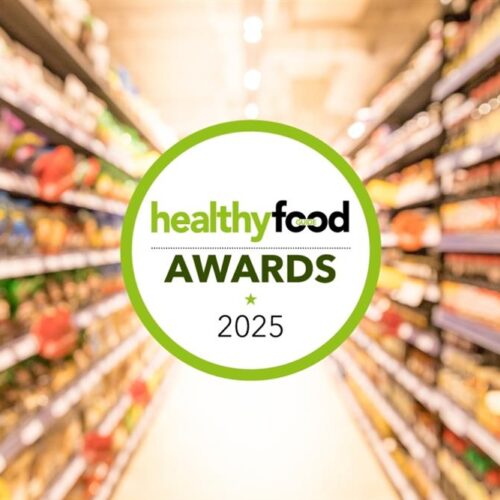
This week, New Zealand became the first significantly affected country to have no active cases of COVID-19 on record.
On Monday, the NZ Ministry of Health announced the country’s final coronavirus patient had been symptom free for 48 hours and was regarded as recovered.
Early projections, back in March, had seen New Zealand on a similar trajectory to Italy, in terms of cases, before strict lockdown rules and border restrictions were put in place.
COVID-19 in numbers
So far, New Zealand has had 1154 confirmed cases and 22 COVID-19-related deaths.
Worldwide there have been almost 7.5 million confirmed cases and 404,000 deaths, but the real numbers are thought to be higher.
Important coronavirus milestone reached
University of Otago public health professor Michael Baker says having no active cases is an important milestone on the way to eliminating COVID-19.
“This is, however, only the first battle in what will be a long-term war against this virus. The threat from Covid-19 obviously remains while this pandemic continues across the globe. This risk will rise again in New Zealand as we gradually increase the numbers of incoming travellers. It will also rise during the coming winter when coronaviruses are more transmissible,” Professor Baker says.
Face masks key in preventing further coronavirus outbreaks
To help mitigate the risk of further outbreaks, he recommends wearing a face mask in high-risk situations, such as on aircrafts and public transport, ‘where people are tightly packed’.
“We know that Covid-19 outbreaks are often started by contact indoors with people who are pre-symptomatic. The hygiene measures of hand washing, staying at home when sick, and coughing into elbows provide limited protection from this mode of transmission. This is where face masks are useful to provide an additional layer of protection,” Professor Baker says.
Last week, in light of evolving evidence, the World Health Organization updated its advice on face masks, advising the public to wear fabric masks where social distancing isn’t possible.
Easing of coronavirus restrictions
Restrictions have been eased in New Zealand to what the Government calls ‘Alert level 1’, meaning the risk of transmission in the community is considered very low. At alert level 1 Kiwis are basically able to participate in normal work and social activities but border restrictions remain in place.
The New Zealand public health strategy was to eliminate COVID-19.
“Elimination does not mean eradicating the virus permanently from New Zealand; rather it is being confident we have eliminated chains of transmission in our community for at least 28 days and can effectively contain any future imported cases from overseas,” the Ministry of Health website explains.
Today [11 June] marks the 20th day of no new cases in New Zealand.
University of Canterbury College of Education, Health & Human Development associate professor Arindam Basu would have liked the Government to wait till there had been 28 consecutive days without active cases, but says they had to balance policy against science.
“The easing of the restrictions seems to be happening sooner on practical and pragmatic considerations. But we now have effective disease surveillance, increased testing capacity, and improved contact tracing. With all these things in place, watchful removal of restrictions might be considered safe enough,” Dr Basu says.
There is still a chance some people in New Zealand may be infected without showing symptoms, Dr Basu says.
“This is why it would be safest for most people to be watchful and still maintain relatively safe distances when interacting with others, practice hand-washing and respiratory hygiene, and wear masks on public transport to minimise personal risk of infection.”
Restrictions also easing elsewhere
Restrictions in the UK will be easing a bit further from 13 June, including single household members being able to join another household ‘bubble’.
Meanwhile, in the US restrictions are also being relaxed, despite 14 states having recorded their worst week for new infections.
Yesterday, Australia recorded its first day with zero locally acquired cases of coronavirus and New South Wales is looking to further ease controls.
Article sources and references
- COVID-19: Elimination strategy for Aotearoa New Zealand. Ministry of Healthhttps://www.health.govt.nz/our-work/diseases-and-conditions/covid-19-novel-coronavirus/covid-19-current-situation/covid-19-elimination-strategy-aotearoa-new-zealand
- Coronavirus disease (COVID-19) advice for the public: When and how to use masks. World Health Organizationhttps://www.who.int/emergencies/diseases/novel-coronavirus-2019/advice-for-public/when-and-how-to-use-masks
- COVID-19 Coronavirus Pandemic. Worldometerhttps://www.worldometers.info/coronavirus/?
- Coronavirus outbreak FAQs: what you can and can't do. Govt.UKhttps://www.gov.uk/government/publications/coronavirus-outbreak-faqs-what-you-can-and-cant-do/coronavirus-outbreak-faqs-what-you-can-and-cant-do
- Coronavirus: more than a dozen US states see record high of new cases. Guardianhttps://www.theguardian.com/world/2020/jun/09/coronavirus-cases-uptick-detected-some-us-states
- Coronavirus (COVID-19) health alert. Australian Government Department of Healthhttps://www.health.gov.au/news/health-alerts/novel-coronavirus-2019-ncov-health-alert?gclid=Cj0KCQjwiYL3BRDVARIsAF9E4GcY9j2yaiQjSH1JTyIRdX6a8N6ILMWXQftyYeV8L3MWHDV5XvwonZMaAr_REALw_wcB
www.healthyfood.com











